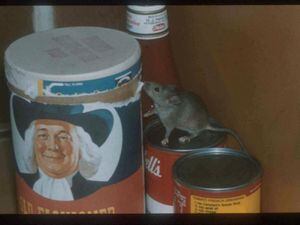Eek! There’s a superbug mouse in the house…
Scientists in New York find evidence of mice carrying infectious antibiotic-resistant bacteria.

House mice may be spreading resistant superbugs that are potentially lethal to humans, research from the US suggests.
Rodents making their homes in New York City apartments were found to carry a wide range of infectious bacteria, including E.coli, C. difficile, Shigella and Salmonella.
All the bugs identified were capable of causing gastro-intestinal infections that in severe cases can be life-threatening.
Lead researcher Simon Williams, from Columbia University in New York City, said: “From tiny studios to penthouse suites, New York City apartments are continually invaded by house mice.
“Our study raises the possibility that serious infections – including those resistant to antibiotics -may be passed from these mice to humans, although further research is needed to understand how often this happens, if at all.”
The scientists spent a year collecting 416 mice from residential buildings at seven sites across New York City.
The rodents’ droppings were analysed for signs of bacteria that could potentially be spread to humans in contaminated food.
Evidence of 36 viruses was also found in the mouse droppings, including six new strains, none of which were known to infect humans.
Some of the genetic sequences matched those for viruses that infect dogs, chickens and pigs as hosts, suggesting they had crossed between species.
A previous study by Columbia University researchers found that New York City rats carried some of the same types of bacteria.
Co-author Professor Ian Lipkin, director of the university’s Center for Infection and Immunity, said: “New Yorkers tend to focus on rats because they are larger and we see them scurrying around in streets or subways; however, from a public health vantage point, mice are more worrisome because they live indoors and are more likely to contaminate our environment, even if we don’t see them.”





